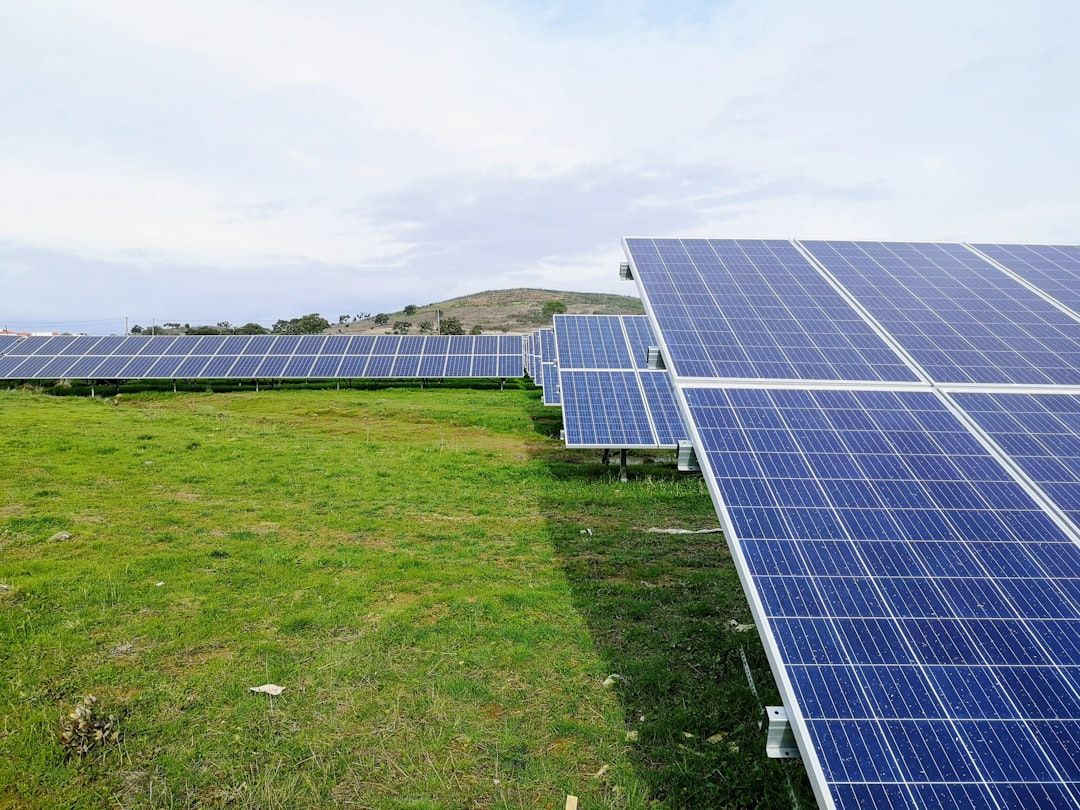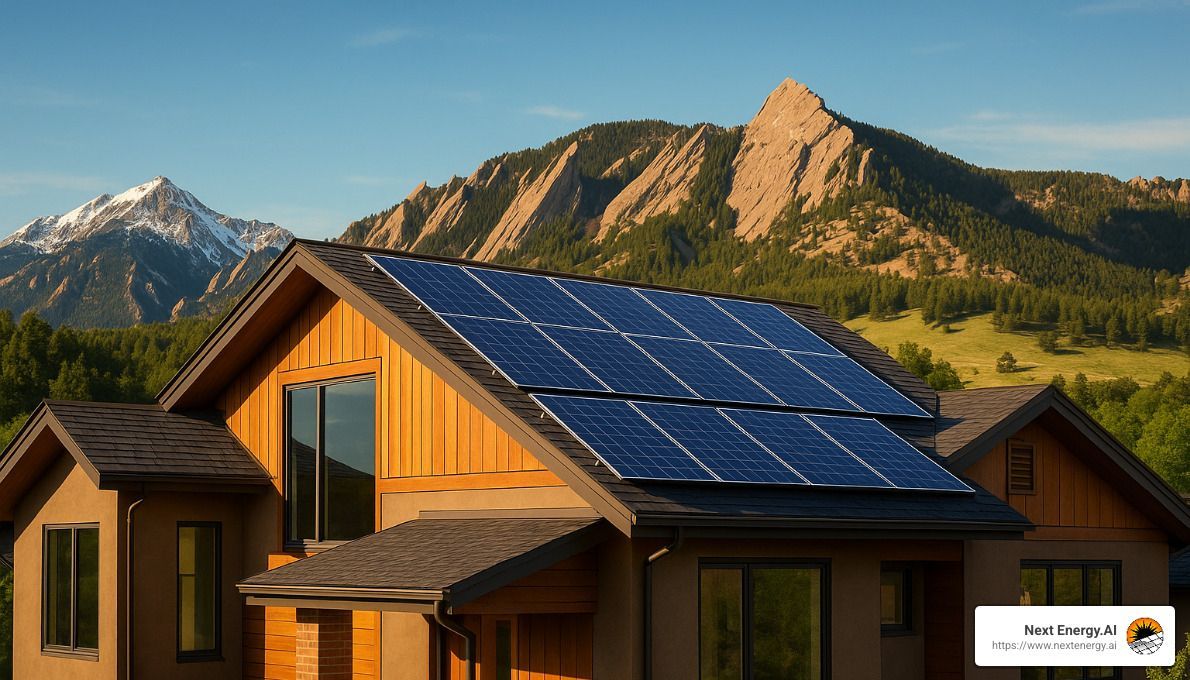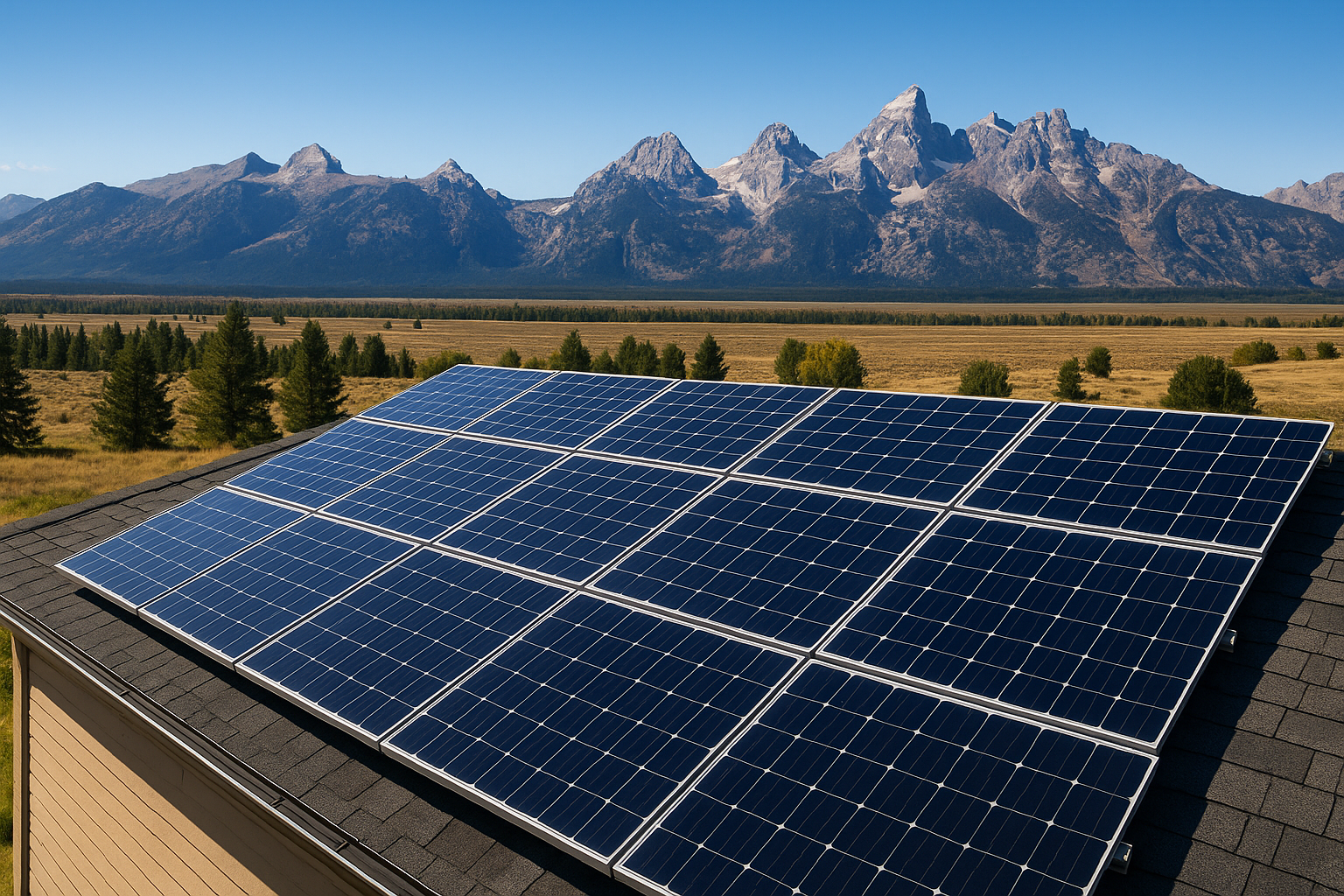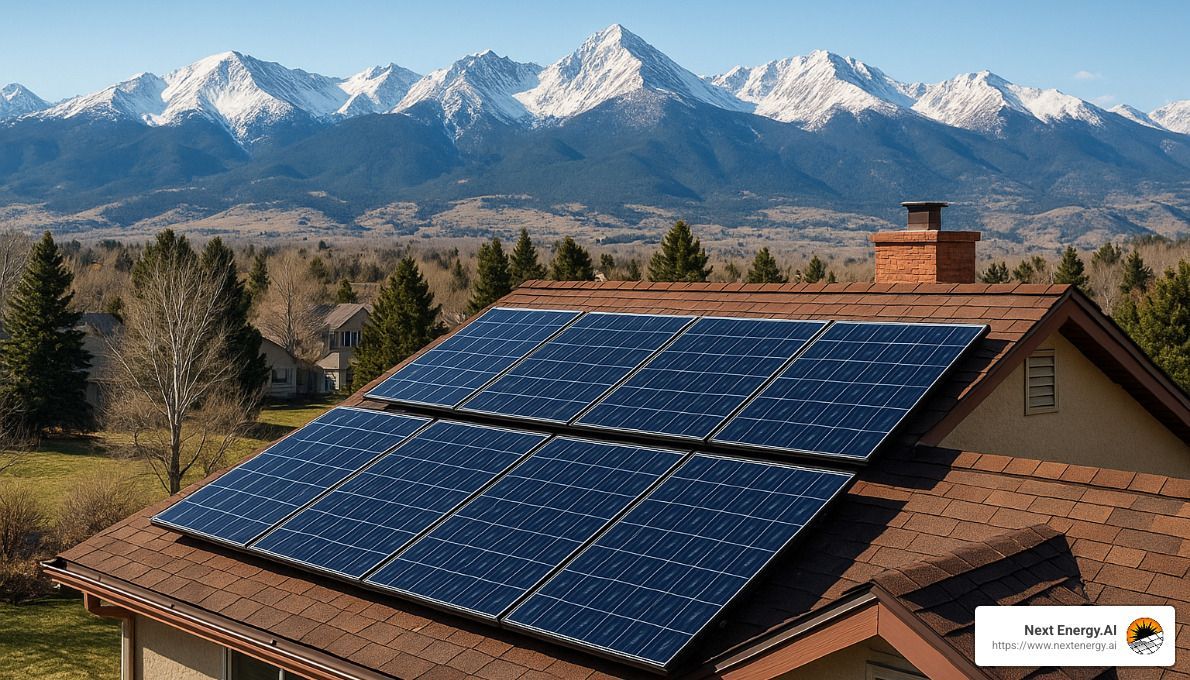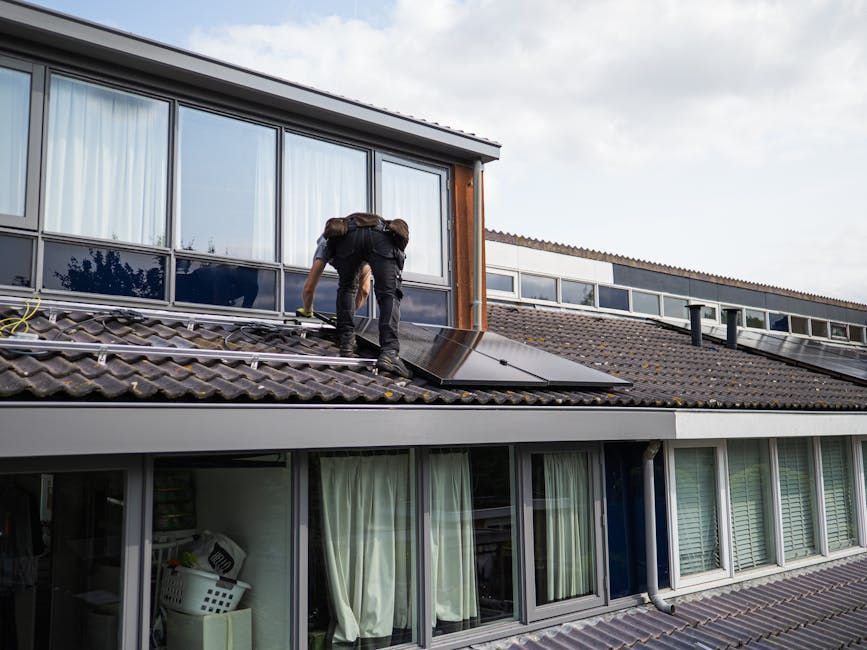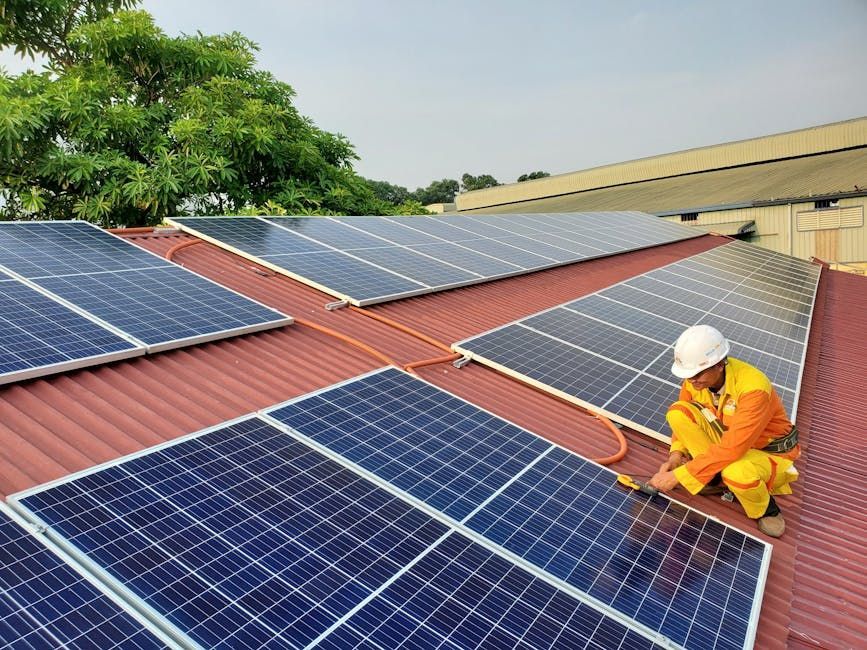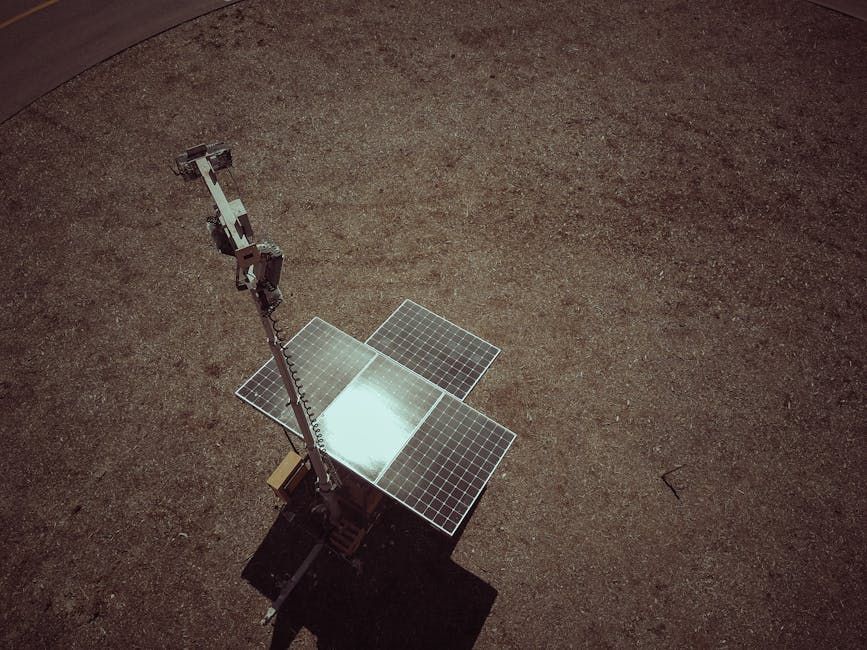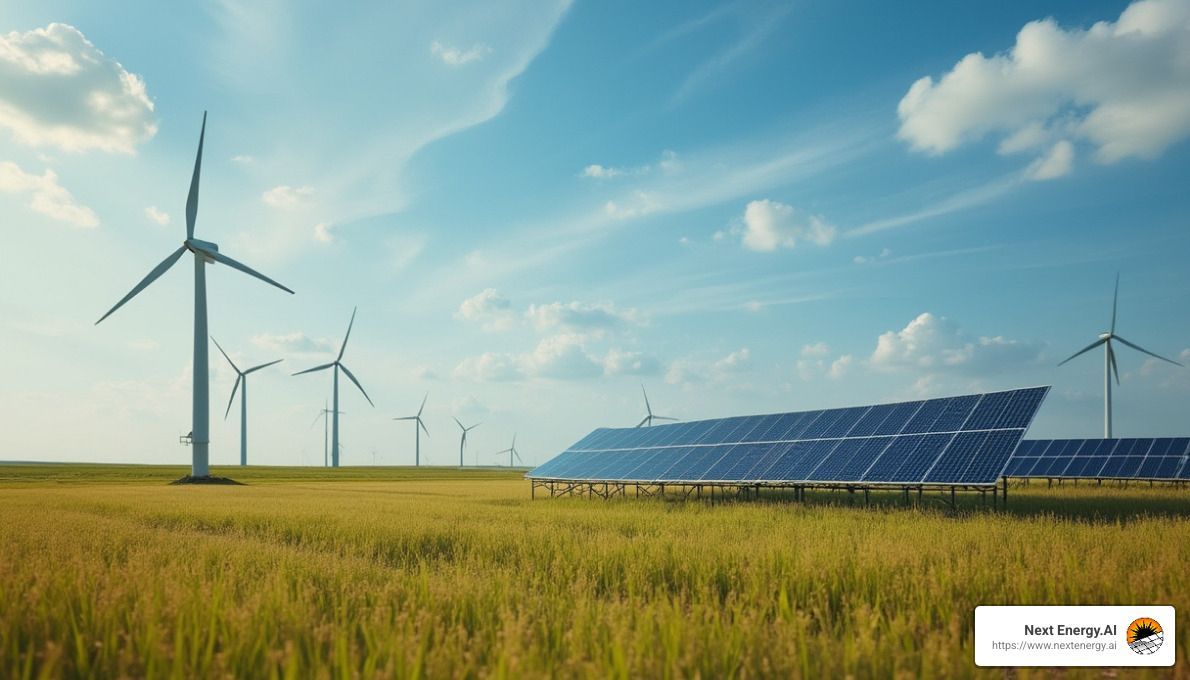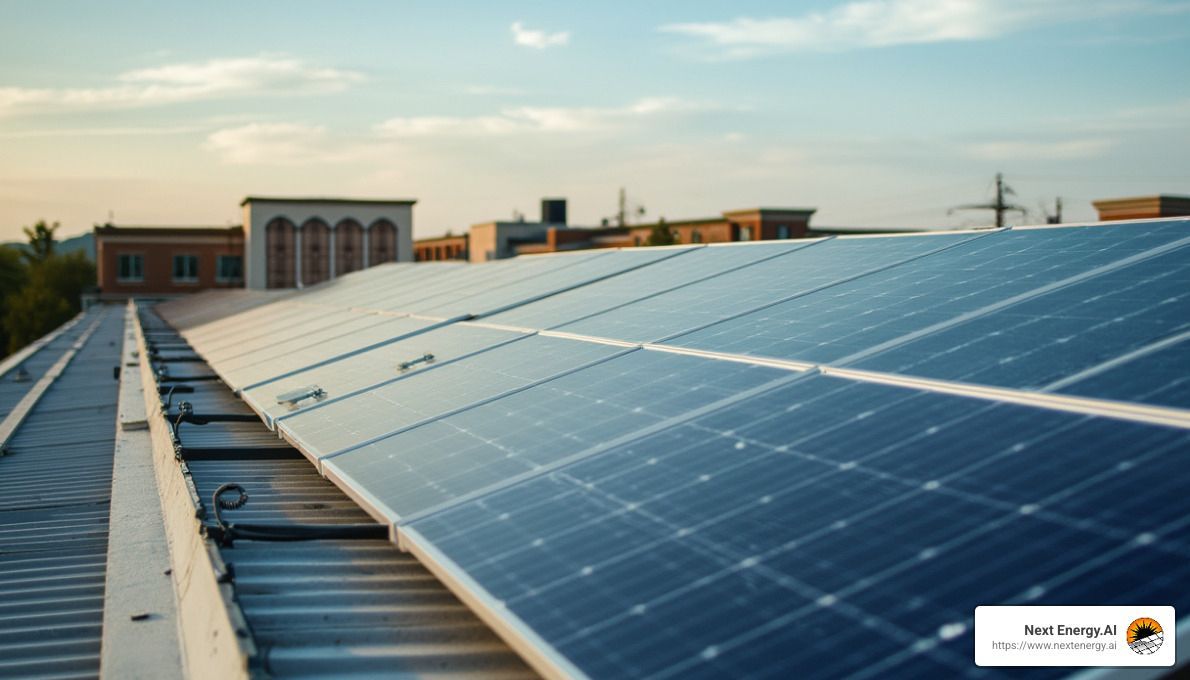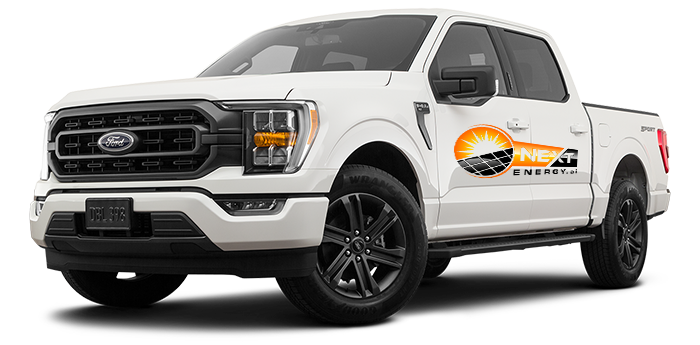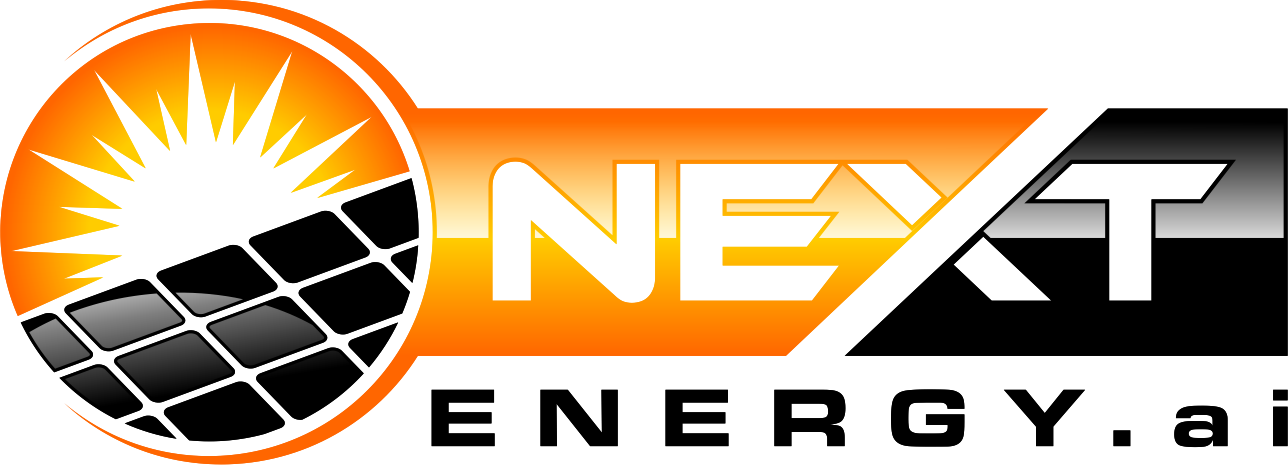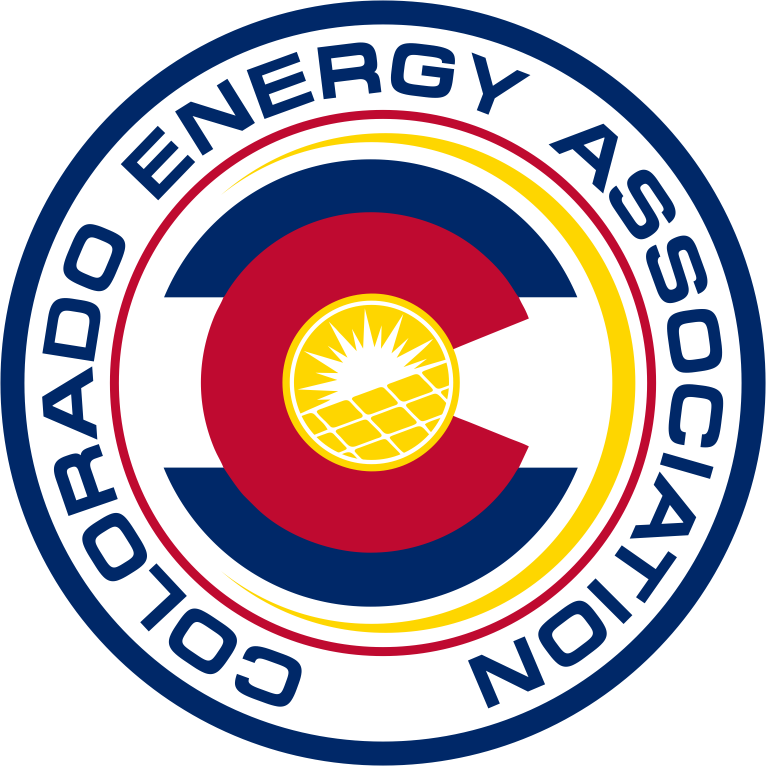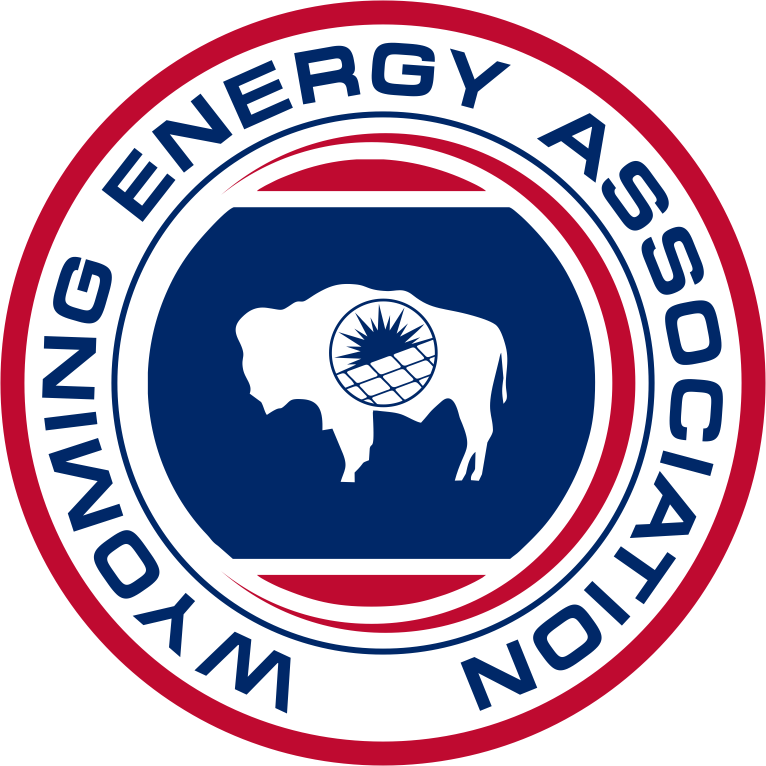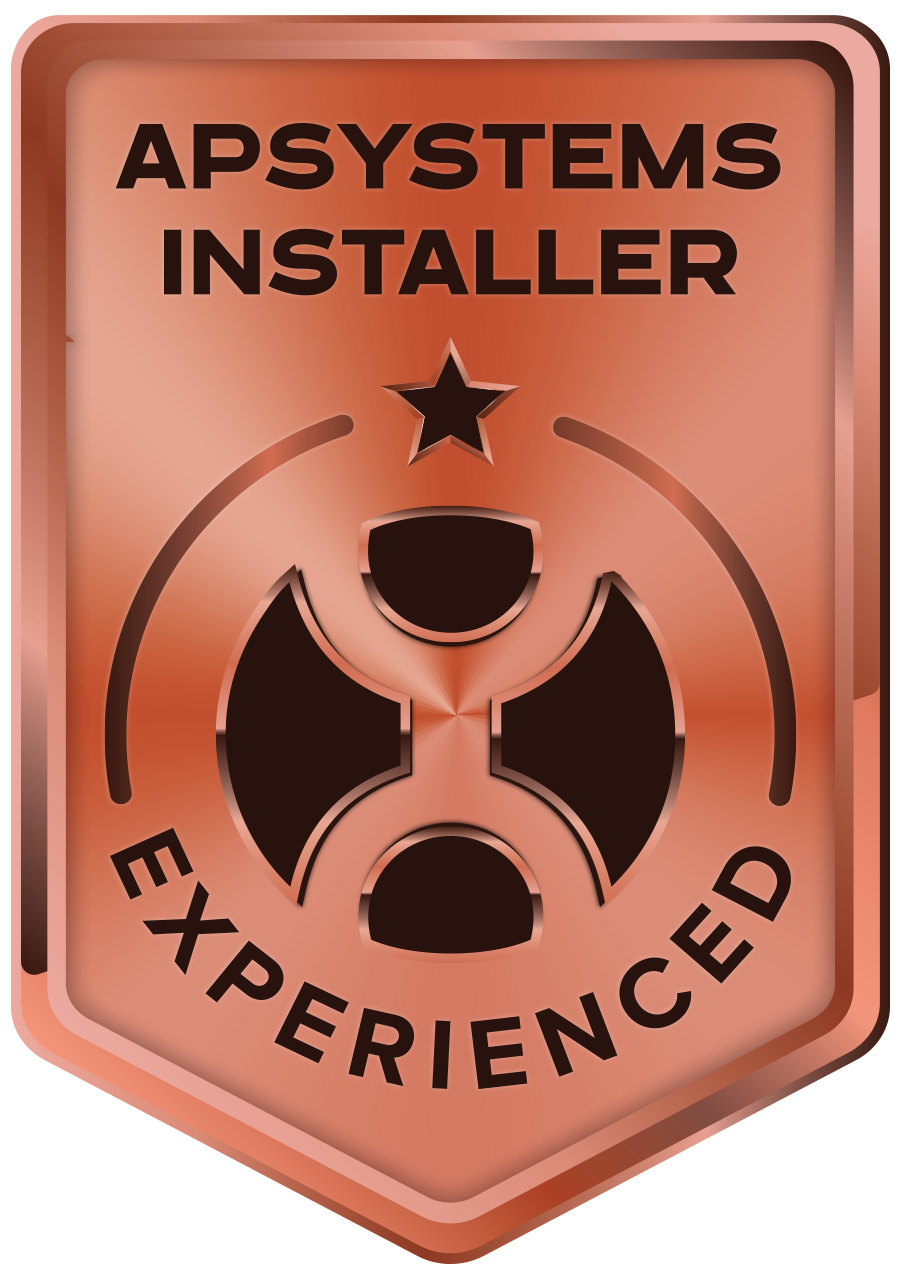From Dust to Shine: How to Maintain Your PV Panels
PV panel maintenance is crucial in ensuring that your system stays efficient, lasts longer, and continues to save you money. Here are the key takeaways to remember:
- Regular cleaning and maintenance can boost energy production by up to 15%.
- Environmental benefits: Solar energy reduces your carbon footprint and dependency on fossil fuels.
- Economic benefits: Lower energy bills, potential tax breaks, and increased property value.
Solar energy remains a top choice for eco-conscious homeowners looking to curb electricity costs and contribute to a cleaner environment. Photovoltaic (PV) solar energy harnesses the sun’s power to produce electricity efficiently and sustainably. It's an investment not only in your home's future but also in the planet's well-being.
I'm Spencer Gordon, CEO of Next Energy.AI, with experience in PV panel maintenance. At Next Energy.AI, we ensure your solar panels remain at peak performance, maximizing your energy savings and reducing environmental impact.
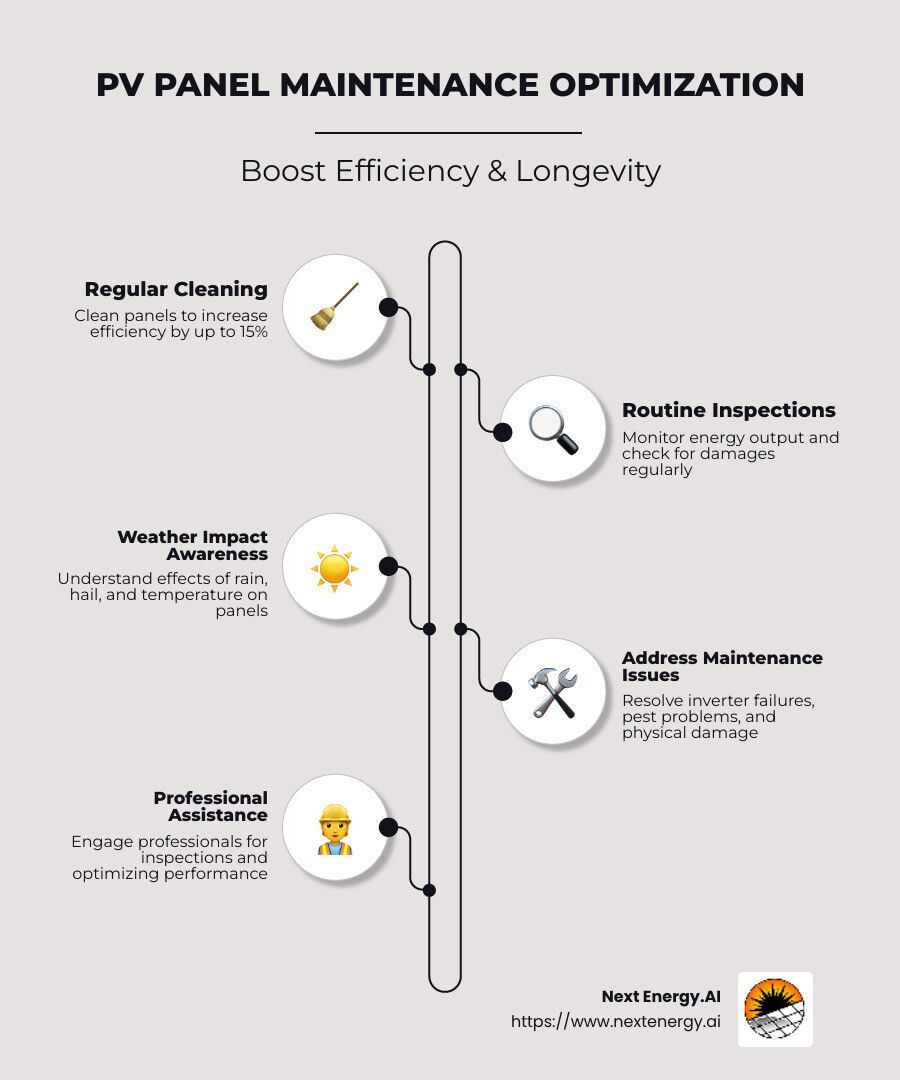
Importance of PV Panel Maintenance
Keeping your PV panels in top shape is not just about keeping them clean; it's about ensuring they perform at their best and provide the most significant benefits to you and the environment.
Boosting Energy Production
Regular maintenance can significantly improve your solar panels' energy production. In fact, proper upkeep can increase energy output by up to 15%. This means more electricity generated from the same amount of sunlight, translating into greater savings on your utility bills.
Enhancing Efficiency
When dust and debris accumulate on your panels, they block sunlight and reduce efficiency. By ensuring your panels are clean and well-maintained, you allow them to operate at their maximum potential. This is essential for getting the most out of your investment and ensuring your system is as green as possible.
Economic Benefits
Investing in PV panel maintenance can lead to substantial economic advantages. Besides lowering your energy bills, well-maintained panels can increase your property's value. According to Investopedia, homes with solar systems often have a higher market value. Plus, you might be eligible for tax incentives, further enhancing your financial returns.
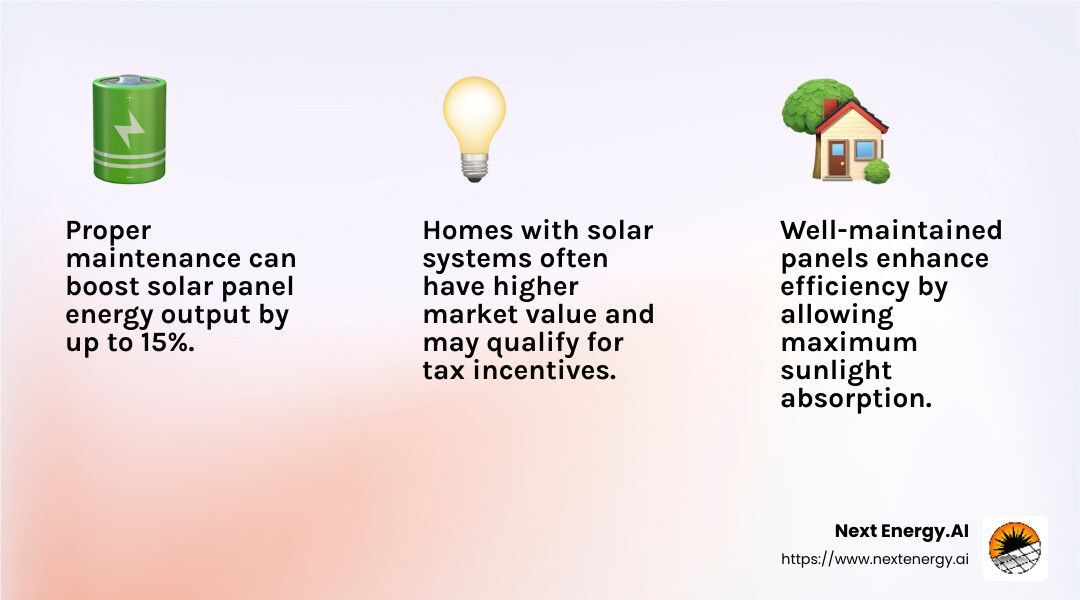
Environmental Impact
By keeping your panels in excellent condition, you continue to contribute to reducing carbon emissions. Solar energy is a clean, renewable resource, and maintaining your panels ensures you consistently harness its full potential. This not only benefits you financially but also supports global efforts to combat climate change.
In summary, PV panel maintenance is a small effort for a big payoff. Whether it's boosting energy production, enhancing efficiency, or reaping economic benefits, the advantages are clear. Next, we'll explore the best practices for maintaining your solar panels, including cleaning techniques and monitoring tips.
How to Maintain Your PV Panels
Maintaining your PV panels is crucial for maximizing their performance and longevity. Let's explore the best practices for keeping your panels in top condition.
Cleaning Techniques for PV Panels
Cleaning Frequency
How often you clean your panels depends on your environment. If you live in a dusty area or near trees that shed leaves and pollen, you might need to clean more frequently. Generally, a good rule of thumb is to inspect and clean your panels at least twice a year.
Cleaning Tools
To clean your panels, you'll need a few simple tools:
- A soft-bristled brush: This helps remove dirt and debris without scratching the panel surface.
- A non-abrasive cleaner: Use a mild soap or detergent mixed with water.
- Lukewarm water: Avoid using hot water, as it can cause thermal shock and damage the panels.
Safety Tips
When cleaning your panels, safety should be your top priority:
- If your panels are on the roof, consider hiring a professional to avoid the risk of falling.
- Never use high-pressure water sprays, as they can damage the panels.
- Clean your panels on a cool, overcast day to avoid quick evaporation and streaking.
Monitoring and Inspections
Keeping an eye on your PV panels is as important as cleaning them.
Energy Output Monitoring
Regularly check your system's energy output to ensure it's performing optimally. Many systems come with monitoring apps or interfaces that allow you to track production easily.
Professional Inspections
While you can handle most maintenance tasks, a professional inspection is advisable every five to ten years. Experts can spot potential issues like wear, cracks, or corrosion that an untrained eye might miss.
Inverter Checks
Inverters are crucial components of your solar system. They convert the DC electricity generated by your panels into AC electricity for home use. Regularly check your inverter's display for error messages or unusual readings. If you notice any issues, contact a professional for an assessment.
By following these PV panel maintenance tips, you ensure your system operates efficiently and safely, providing clean energy for years to come. Next, we'll explore how weather impacts your panels and what you can do to protect them from extreme conditions.
Impact of Weather on PV Panels
Weather plays a significant role in the performance and durability of your PV panels. Let's explore how different weather conditions can impact your solar system.
Durability
PV panels are designed to be tough. They can withstand a variety of weather conditions, from rain and wind to snow and hail. In fact, the Department of Energy has found that solar panels hold up well against hail. During Hurricane Florence in 2018, solar systems in North Carolina experienced limited damage, showcasing their resilience even in extreme weather.
However, while they're built to last, panels aren't completely indestructible. Severe weather events like hurricanes, tornadoes, or lightning can occasionally cause damage. Fortunately, a good warranty can cover repairs or replacements if this happens.
Extreme Weather
Despite their durability, extreme weather can still pose challenges. Hailstorms can cause micro-cracks in solar cells, and high winds might loosen mounting materials. After any severe weather event, it's wise to inspect your system for signs of damage or decreased performance.
Ironically, the most common weather-related issue isn't storms but heat. When the temperature exceeds 77°F (25°C), PV panels lose about 1% efficiency for each degree increase. This loss can be mitigated by elevating panels a few inches above the roof or ground to allow air circulation, helping to cool them down.
Temperature Effects
Temperature fluctuations can affect the efficiency of your solar panels. While they perform well in a variety of conditions, extreme heat can reduce their efficiency. On the other hand, cold weather doesn't harm them and can even improve performance slightly, as panels operate more efficiently in cooler temperatures.
In hot climates, it's crucial for installers to consider local temperature trends when positioning and mounting panels. Proper installation can help mitigate the effects of heat and ensure optimal performance throughout the year.
By understanding how weather impacts your PV panels, you can better prepare and protect your investment. Next, we'll look into common maintenance issues and how you can solve them effectively.
Common Maintenance Issues and Solutions
Even with robust construction, PV panels can encounter maintenance issues. Knowing how to address these problems ensures your solar system runs smoothly.
Inverter Failure
Inverters are crucial for converting the DC electricity from your panels into AC electricity for your home. If an inverter fails, it can halt energy production.
Solution: Regularly monitor your system's output. If you notice a drop, check the inverter for error codes or alerts. If the inverter is faulty, contact your installer or manufacturer for repair or replacement. A good warranty often covers inverter issues.
Pest Problems
Pests like birds and rodents can nest under panels or chew on wires, causing significant damage.
Solution: Install protective barriers or mesh around your panels to deter pests. Regular inspections can detect early signs of pest activity. If you find evidence of pests, consult a pest control professional to safely remove them and repair any damage.
Panel Damage
While PV panels are durable, physical damage from extreme weather or accidents can occur.
Solution: After severe weather events, visually inspect your panels for cracks or other damage. If you see any issues, contact a professional to assess and repair them. Never attempt to fix panels yourself, as this can void warranties and cause further harm.
Maintaining your solar system involves addressing these common issues promptly. By doing so, you ensure your PV panels continue to generate clean energy efficiently. Next, we'll address some frequently asked questions about maintaining your panels.
Frequently Asked Questions about PV Panel Maintenance
How often should PV panels be cleaned?
Cleaning frequency is crucial for maintaining optimal performance. Generally, it's recommended to clean your PV panels between two and four times per year. However, this can vary based on environmental factors. If you live in a dusty or heavily polluted area, you might need to clean them more often.
Tip: Monitor your energy output. If you notice a drop, it could be a sign your panels need cleaning.
Does rain clean PV panels effectively?
While rain can help remove some dust and dirt, it is not a substitute for manual cleaning. Rainfall impact is limited, especially in areas with significant pollution or pollen. To ensure your panels operate at peak efficiency, manual cleaning is necessary.
Manual Cleaning Necessity: Use a soft-bristled brush and a non-abrasive cleaner. Avoid using hot water, as it can crack the panels due to temperature differences.
Can severe weather damage PV panels?
Hailstorms, extreme temperatures, and high winds can potentially damage your panels. Although most PV panels are designed to withstand harsh weather, severe conditions can lead to issues like micro-cracks or loosened mounts.
Temperature Effects: Panels lose efficiency when temperatures exceed 77°F. Elevating them a few inches can help with air circulation and cooling.
Warranty Coverage: In case of damage, check your warranty. Many warranties cover weather-related damage, ensuring you can repair or replace affected panels without incurring high costs.
Understanding these factors helps you keep your PV panels in top condition, maximizing your energy production and savings.
Conclusion
At Next Energy.AI, we're passionate about using the power of the sun to fuel your future. Our mission is to deliver cutting-edge solar solutions that not only provide clean energy but also optimize your energy usage through advanced AI technology.
AI-Improved Solar Solutions: Our AI-improved systems transform traditional solar panels into intelligent energy management systems. This means your solar setup doesn't just generate power—it learns and adapts to maximize efficiency. Imagine a system that adjusts to your energy needs, ensuring you're always getting the most out of your investment.
Optimized Energy Usage: By integrating AI into our solar solutions, we empower you to achieve peak energy efficiency. Our systems monitor energy production in real-time, offering insights and adjustments that help you save more and reduce your carbon footprint. This optimization is crucial not only for reducing costs but also for contributing to a sustainable future.
As you start on your solar journey with us, maintaining your PV panels is key to sustaining their efficiency and longevity. Regular maintenance and AI-driven insights work hand-in-hand to ensure your panels perform at their best.
If you're ready to take the next step towards a cleaner, smarter energy future, explore our solar energy system maintenance services. Let us help you transform your home into a guide of innovation and sustainability, powered by the sun.
Together, we can create a brighter, greener future for Northern Colorado and Southern Wyoming.
